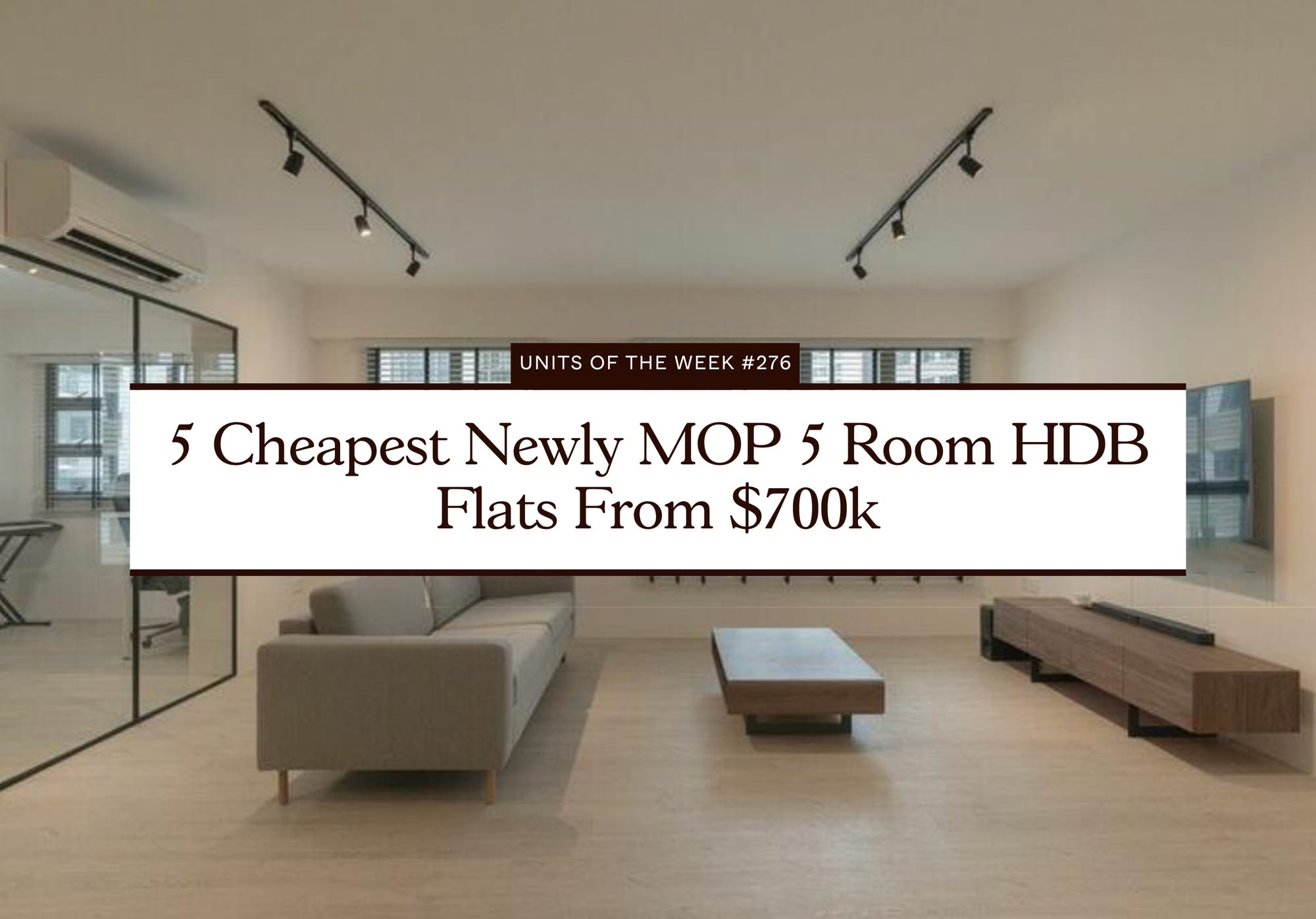Is It Worth Buying A Property Before It Goes En-Bloc? We Look At Past Data And What You Need To Know
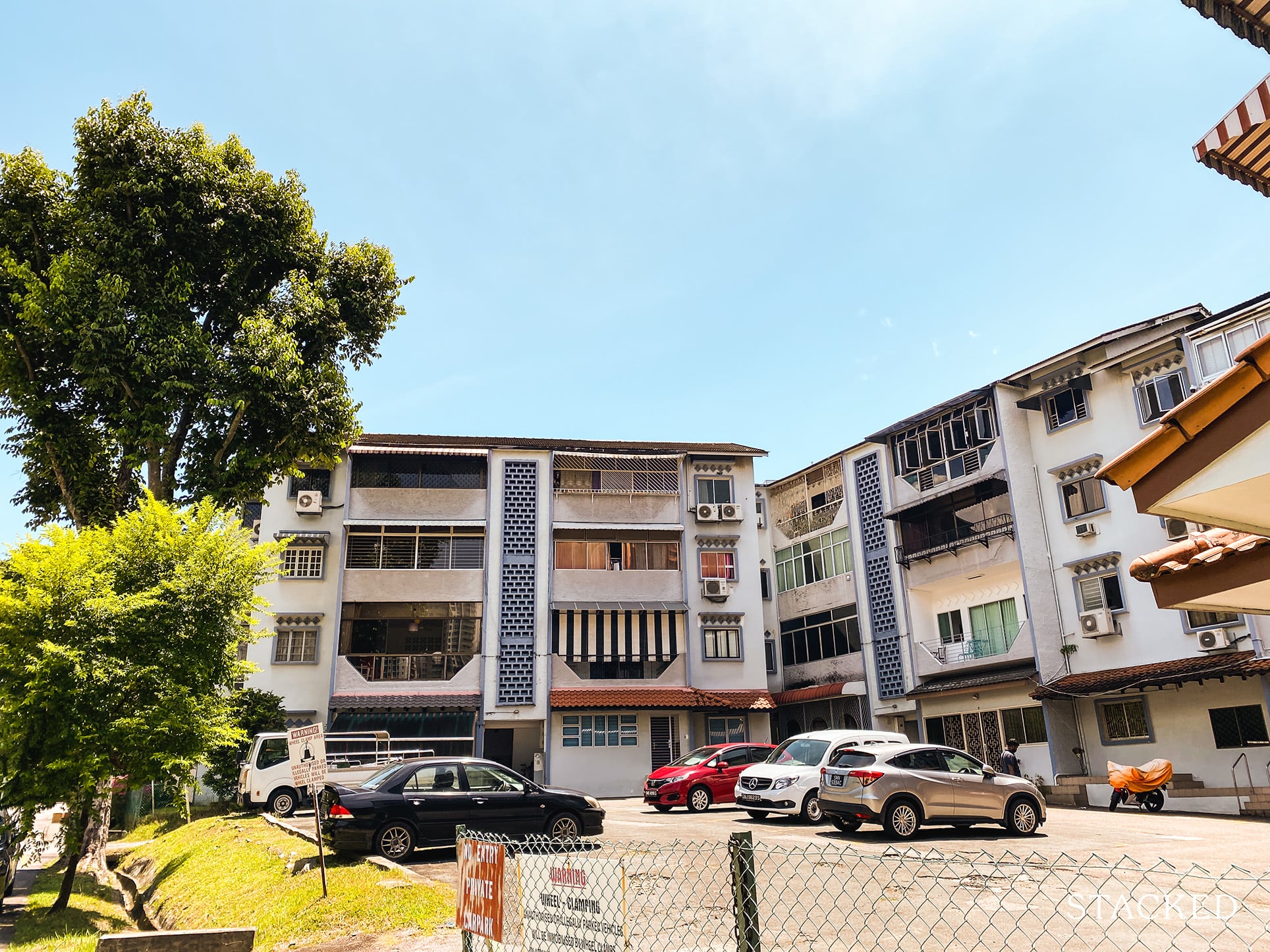
Get The Property Insights Serious Buyers Read First: Join 50,000+ readers who rely on our weekly breakdowns of Singapore’s property market.
A seasoned content strategist with over 17 years in the real estate and financial journalism sectors, Ryan has built a reputation for transforming complex industry jargon into accessible knowledge. With a track record of writing and editing for leading financial platforms and publications, Ryan's expertise has been recognised across various media outlets. His role as a former content editor for 99.co and a co-host for CNA 938's Open House programme underscores his commitment to providing valuable insights into the property market.
One of the main differences between HDB and private properties is the greater potential for en-bloc sales. In fact, some investors go out of their way to purchase older properties; not only is the cost lower (and sometimes higher rental yields), they may also hit the proverbial jackpot if an en-bloc sale happens.
Well, we all know that hitting the en-bloc jackpot is always going to be a profitable one.
But what about those who’ve bought just before an en-bloc sale? With the current 12 per cent Seller Stamp Duty (SSD), would you still even be able to make any profit? Here’s a look at the data.
Real transactions that have seen profits right after en-bloc
We’ve tracked down a series of transactions, made six months before an en-bloc sale of the property. Note that the following buyers made a profit even after paying the Sellers Stamp Duty (SSD).
The SSD is a tax on the sale proceeds of the property, that applies even in an en-bloc situation. The current rate is:
- 12 per cent on the first year
- 8 per cent on the second year
- 4 per cent on the third year
In the following table, an exception to this is Raintree Gardens. This property went en-bloc in 2016, when the SSD rate was higher by 4 per cent (16 per cent on the first year, 12 per cent on the second year, 8 per cent on the third year, and 4 per cent on the fourth year).
Finally, we calculated the sales proceed by multiplying the en bloc price psf to the size of the apartment, so the numbers could differ if it was done by share value instead. So the cost of the SSD is factored into the final profit margin:
| Project | Transacted Price | Area (sqft) | Purchased Date | Proceeds | SSD | Profit | % Gains | Days between |
| Florence Regency | 900,000 | 1701 | 18-May-17 | $1,897,992 | $227,759 | $770,233 | 86% | 155 |
| Florence Regency | 1,239,999 | 1690 | 26-Jul-17 | $1,885,984 | $226,318 | $419,667 | 34% | 86 |
| Florence Regency | 1,280,000 | 1701 | 8-Jun-17 | $1,897,992 | $227,759 | $390,233 | 30% | 134 |
| Florence Regency | 905,000 | 1625 | 27-Apr-17 | $1,813,902 | $217,668 | $691,234 | 76% | 176 |
| Goodluck Garden | 1,360,000 | 1270 | 2-Nov-17 | $2,372,640 | $284,717 | $727,923 | 54% | 126 |
| How Sun Park | 1,880,000 | 2734 | 13-Jul-17 | $4,016,334 | $481,960 | $1,654,374 | 88% | 138 |
| Landmark Tower | 1,430,000 | 1292 | 26-Jan-18 | $2,058,938 | $247,073 | $381,865 | 27% | 112 |
| Landmark Tower | 1,035,000 | 1033 | 2-Jan-18 | $1,647,144 | $197,657 | $414,487 | 40% | 136 |
| Mayfair Gardens | 1,470,000 | 1798 | 26-May-17 | $2,588,530 | $310,624 | $807,906 | 55% | 175 |
| Park West | 740,000 | 872 | 27-Jul-17 | $1,164,832 | $139,780 | $285,052 | 39% | 168 |
| Park West | 970,000 | 1249 | 24-Aug-17 | $1,668,156 | $200,179 | $497,978 | 51% | 140 |
| Pearl Bank Apartment | 1,600,000 | 1755 | 25-Aug-17 | $2,454,587 | $294,550 | $560,037 | 35% | 172 |
| Raintree Gardens | 1,008,600 | 1679 | 21-Apr-16 | $1,890,757 | $302,521 | $579,636 | 57% | 168 |
| Riviera Point | 1,500,000 | 1281 | 18-Sep-17 | $2,250,576 | $270,069 | $480,507 | 32% | 149 |
| Riviera Point | 1,600,000 | 1346 | 10-Nov-17 | $2,364,044 | $283,685 | $480,358 | 30% | 96 |
| Sembawang Hills Estate | 2,300,000 | 3681 | 14-Jun-17 | $4,347,603 | $521,712 | $1,525,891 | 66% | 118 |
| Sun Rosier | 1,925,000 | 2336 | 25-Apr-17 | $4,405,300 | $528,636 | $1,951,664 | 101% | 149 |
| Tampines Court | 950,000 | 1658 | 16-Mar-17 | $1,697,444 | $203,693 | $543,751 | 57% | 159 |
| Tampines Court | 930,000 | 1690 | 11-May-17 | $1,730,509 | $207,661 | $592,848 | 64% | 103 |
| Tampines Court | 980,000 | 1711 | 9-May-17 | $1,752,556 | $210,307 | $562,249 | 57% | 105 |
| Tampines Court | 920,000 | 1711 | 26-May-17 | $1,752,556 | $210,307 | $622,249 | 68% | 88 |
| Tampines Court | 915,000 | 1679 | 18-Apr-17 | $1,719,480 | $206,338 | $598,143 | 65% | 126 |
Special shoutout to the Sun Rosier deal as the owner made 101% even after factoring the SSD in 6 months.
As you can see, it’s possible to profit off an en-bloc sale, even taking into account the SSD. This was why, in 2017 or prior, it wasn’t uncommon for investors to show interest even in very old properties (or sometimes, interest because the property was old).
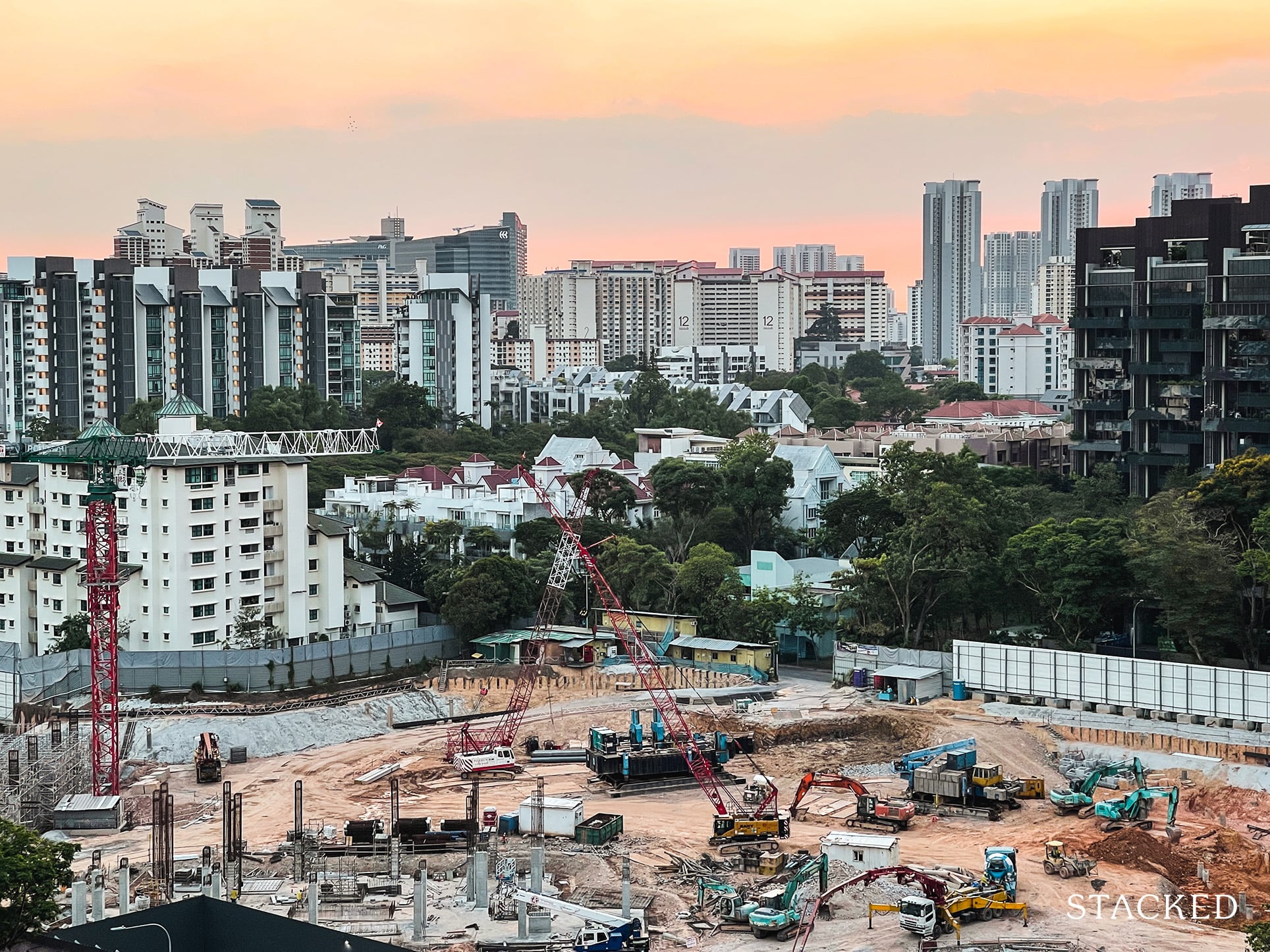
However, we should note that 2017 was an exceptional year, and there have been many changes since
In 2017, local and foreign developers were both competing to build their land banks. This resulted in an en-bloc fever, with unusually high land prices. For example, Sun Rosier, in the above transactions, was bought at a total cost of $271 million. This was 15 per cent higher than its initial asking price of $235 million. We’d be hard pressed to find many equivalent examples after 2017. There are two reasons for this:
First, Development Charges (DCs) to build new properties have increased. In fact in 2017, the government raised DCs by 13.8 per cent on average, in 116 out of 118 property sectors; although there was never a direct statement saying it was to cool en-bloc sales.
(We have a prior article explaining DCs and how they impact the property market)
DCs for residential properties have yet to return to those levels in most sectors. These higher charges dissuade en-bloc sales, and prompt lower offers from developers. We also wouldn’t be surprised if, in response to another encroaching en-bloc fever, the government decides to hike the rates again.
Second, the government raised the Additional Buyers Stamp Duty (ABSD) to 30 per cent on the land price, for developers. This occurred in the 2018 cooling measures. A developer can get remission of 25 per cent, by completing and selling all units within a five-year period.
This makes larger land plots problematic. Whether a development has a few hundred units, or more than a thousand, a developer still has the same five-year time limit. As such, only the boldest developers will consider large condo developments for en-bloc.
Besides the different circumstances in 2021, there are a few added risks to understand before trying to “buy just before en-bloc”
- The method of apportionment makes it hard to predict how much you’ll get
- SSD aside, your home loan package may have prepayment penalties
- Timing issues regarding the sale proceeds
- If an en-bloc fails repeatedly, you could be saddled with a liability
- New EGM rules
More from Stacked
Grand Dunman vs The Continuum vs Tembusu Grand: How To Choose Between The 3 New Launch Condos In District 15
It's been some time since we had a concentrated launch of condos in one area (the last was the glut…
1. The method of apportionment makes it hard to predict how much you’ll get
It’s commonly said that the share value of the unit determines how much you’ll make, during an en-bloc sale. This may lead you to believe that “higher share value = bigger sale proceeds”. The reality doesn’t quite work out that way. In fact, larger units with a higher share value often get a worse deal.
The share value system was devised by BCA to work out an equitable distribution of maintenance costs – it was never designed to be a method of apportionment during en-bloc sales. It can be extremely unfair to owners of large units.
Here’s why:
| Gross Floor Area (sqm) | Share Value |
| 50 | 5 |
| 51 – 100 | 6 |
| 101 – 150 | 7 |
| 151 – 200 | 8 |
| 201 – 250 | 9 |
You might assume that, if your unit is 200 sq m., you would get four times as much as someone whose unit is 50 sq m. However, the share value doesn’t rise proportionally in the same way – at 200 sq m, your share value is not 20, it is just eight.
(A good thing in any other context, otherwise maintenance fees for bigger units would be unsustainable).
As such, owners of bigger units may dispute this approach, and a different method of apportionment may be used. Besides this, you also have:
- Genuine home owners who don’t want the en-bloc, and will want to be compensated for costs like renovations and moving (imagine if you move in just a year before, renovate the place, and are now forced to move again!)
- Owners who are eager to force through the en-bloc as fast as possible and move on to their next investment, who may be inclined to settle for less
- Problems and costs involved in topping-up the lease, which may cause the developer to offer less than expected
All of this goes through several rounds of negotiations, so it’s hard to guess what your likely pay-off will be. There are highly profitable en-bloc cases, and there are cases where owners barely break-even.
(An outright loss is unlikely however, as the Strata Titles Board will usually not approve an en-bloc if it results in someone suffering a financial loss; even if there’s sufficient consensus).
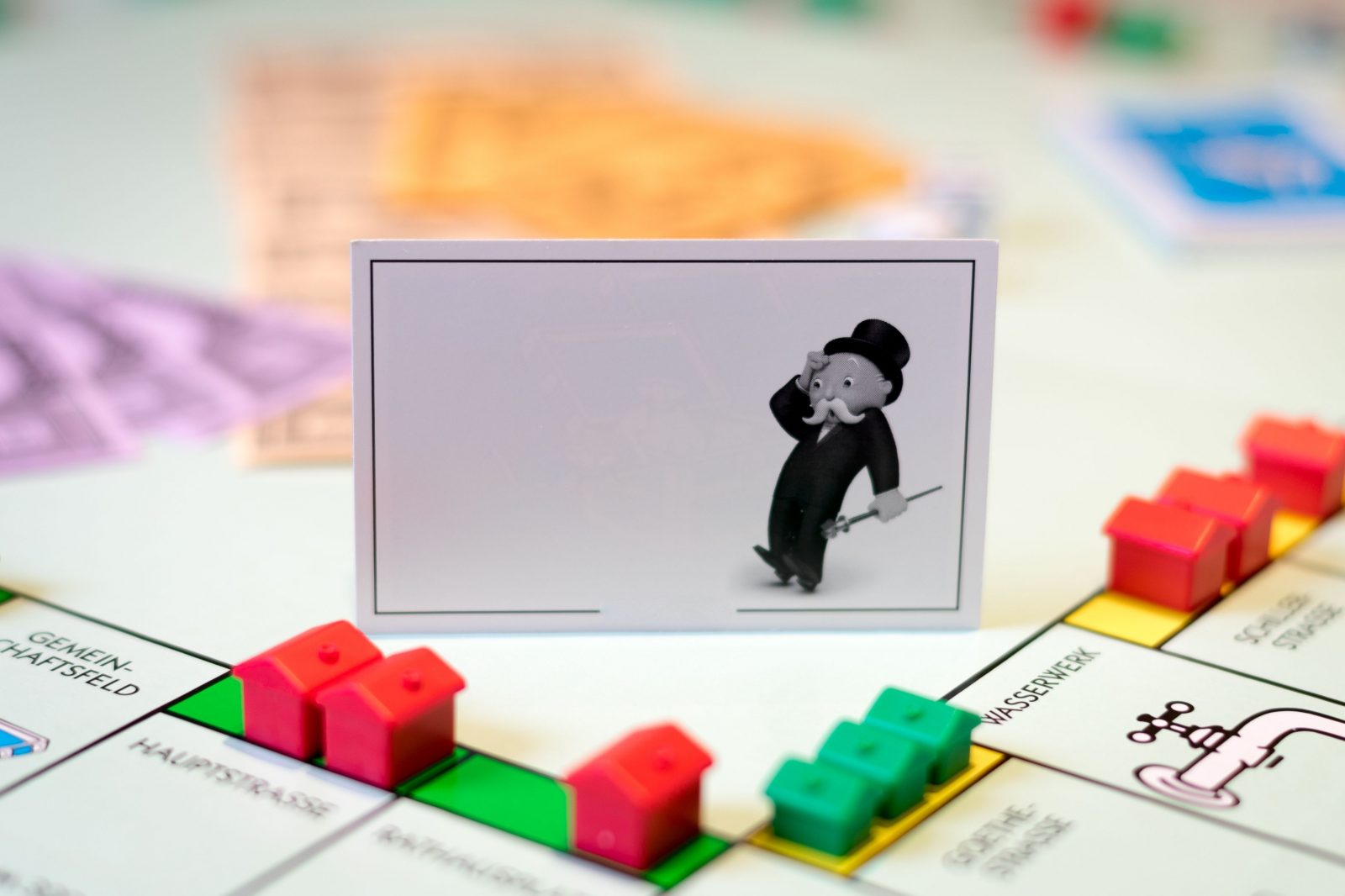
2. SSD aside, your home loan package may have prepayment penalties
In our experience, buyers who have only used HDB loans before tend to get blindsided by this. HDB does not care if you choose to repay your home loan early, by whatever amount. Banks do, as they could lose out on the interest among other costs.
As such, many home loan packages involve a prepayment penalty; these are often applicable within the first three to five years. The standard penalty is up to 1.5 per cent of the amount (e.g., repaying $800,000 early would incur an added $12,000).
There are some loan packages that offer ways around this however, such as loans that don’t charge prepayment penalties due to sale. If you need help deciphering all this fine print, which is admittedly confusing, drop us a message and we can check for you.
In any case, if you’re buying with an eye toward a quick en-bloc sale, be careful which loan option you use.
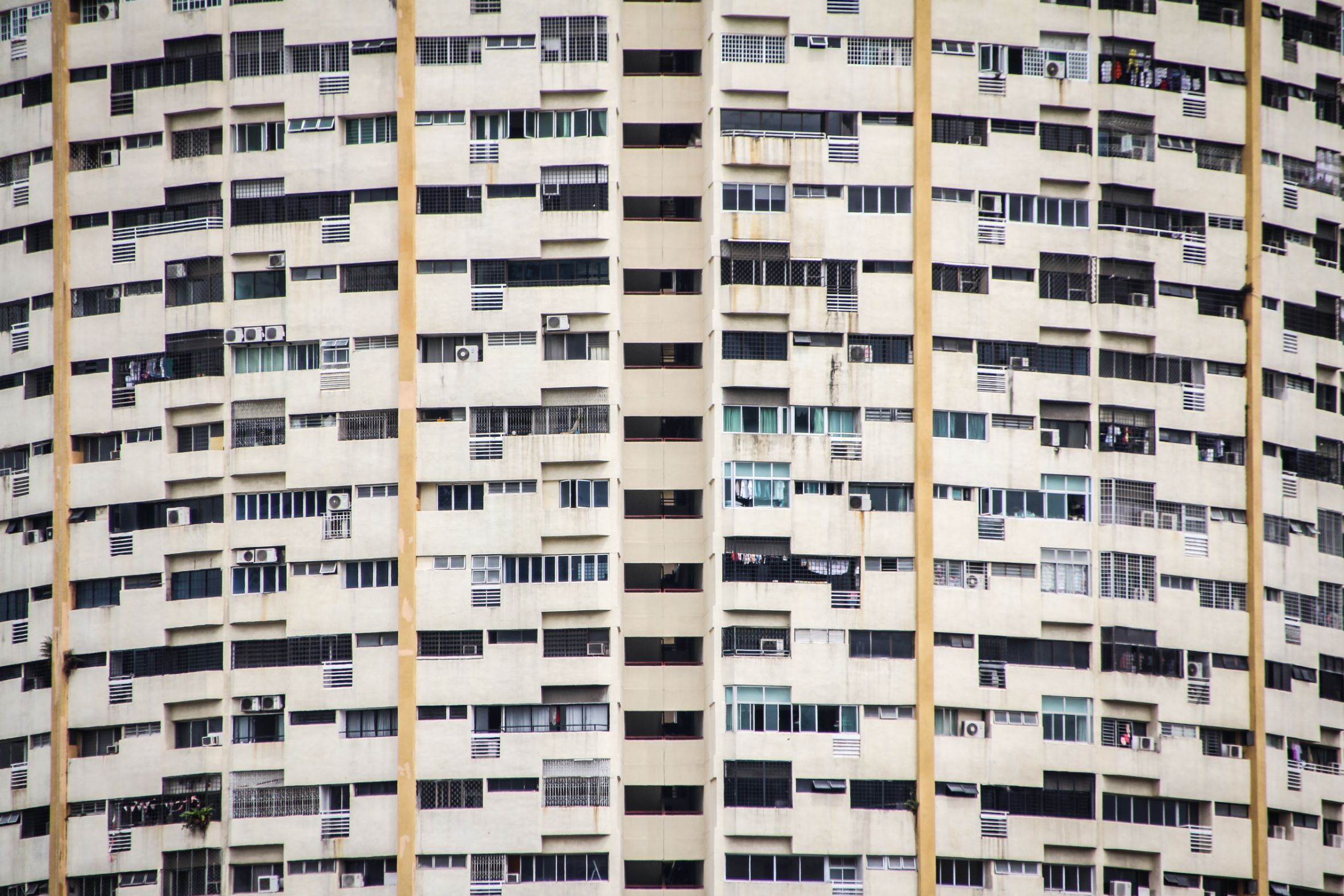
Property AdviceThe Other Owners Agreed To An En-bloc Right After I Moved In: Now What?
by Ryan J3. Timing issues regarding the sale proceeds
If the en-bloc property is also your home, be aware that en-bloc sales can incur added costs in the form of temporary accommodation, or interest on short-term loans.
This is because the sale proceeds may take some time to come in; in some cases, up to 12 months. This is problematic if you’re required to vacate the property, long before your sale proceeds come in.
Also, remember that buying a second property, while still holding on to your soon-to-be-en-bloc-home, will incur Additional Buyers Stamp Duty (ABSD). If you still have an outstanding home loan on the en-bloc property, it will also lower the amount you can borrow for your next home; maximum financing is often capped at just 55 per cent if you have an outstanding home loan.
All of this can snarl your cash flow, and force a rushed decision on your next property. We’ll cover more of this in an upcoming article, and look at how to work through it – but for now, suffice it to say the en-bloc process can result in added costs like having to rent.
4. If an en-bloc fails repeatedly, you could be saddled with a liability
There is a restriction period of 12 months after a failed en-bloc sale, before another attempt can be made. Repeated, close-fought en-bloc attempts tend to result in run-down properties for a very simple reason:
If the last en-bloc attempt failed by a margin of five or six per cent, there’s a high chance the en-bloc is around the corner. In light of that, how many owners are going to agree to a maintenance fee hike to improve the facilities, fix an old sauna, repaint the façade, etc.?
This can result in situations where a string of failed-but-close en-bloc attempts, over a period of years, results in a run-down condo; one that also brings in lower rental costs, and is difficult to sell.
5. New EGM rules
We’ve written about it in-depth here. In a nutshell, it is a limit to the number of proxy voters during en-bloc sales. So no longer will it consist of a handful of people voting on behalf of potentially hundreds of owners, and it would naturally slow down the en-bloc process.
This will impact bigger developments more than smaller ones. With proxy votes capped at two, developments with 800 to 1,000+ units are likely to see a lot more home owners come to table; with consensus being slower to attain.
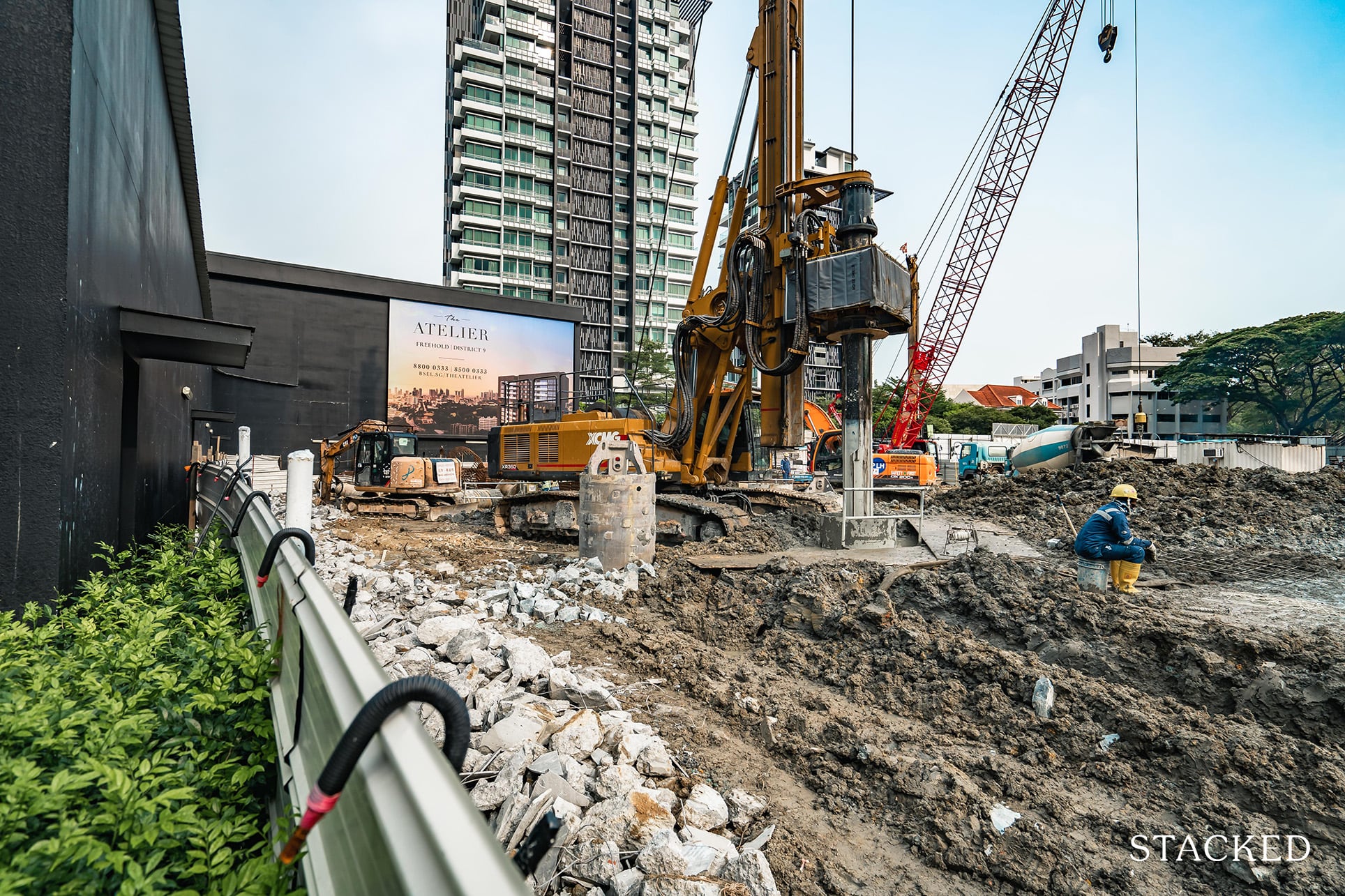
So while it is possible to make quick profits off an en-bloc sale, it’s not a suitable strategy for every investor
If you’re dealing with a single property that will also be your home, buying in hopes of an en-bloc is hazardous. It’s best to engage in en-bloc speculation only if the property is (1) not also your primary residences, and (2) you won’t have too much capital tied up in an old, hard-to-sell property, should the en-bloc attempt fail.
We’ll also add one final hazard: if you just have sheer bad luck, the government might pass new cooling measures just before your en-bloc deal goes through; and that may prompt a developer to change their mind about buying.
This is an approach for well-capitalised investors, who are also seasoned enough to spot en-bloc potential, and understand Singapore’s private property market cycles. For more on happenings in Singapore real estate, you can follow us on Stacked; we’ll also provide you with reviews on new and resale condos alike.
If you’d like to get in touch for a more in-depth consultation, you can do so here.
Ryan J
A seasoned content strategist with over 17 years in the real estate and financial journalism sectors, Ryan has built a reputation for transforming complex industry jargon into accessible knowledge. With a track record of writing and editing for leading financial platforms and publications, Ryan's expertise has been recognised across various media outlets. His role as a former content editor for 99.co and a co-host for CNA 938's Open House programme underscores his commitment to providing valuable insights into the property market.Read next from Property Investment Insights
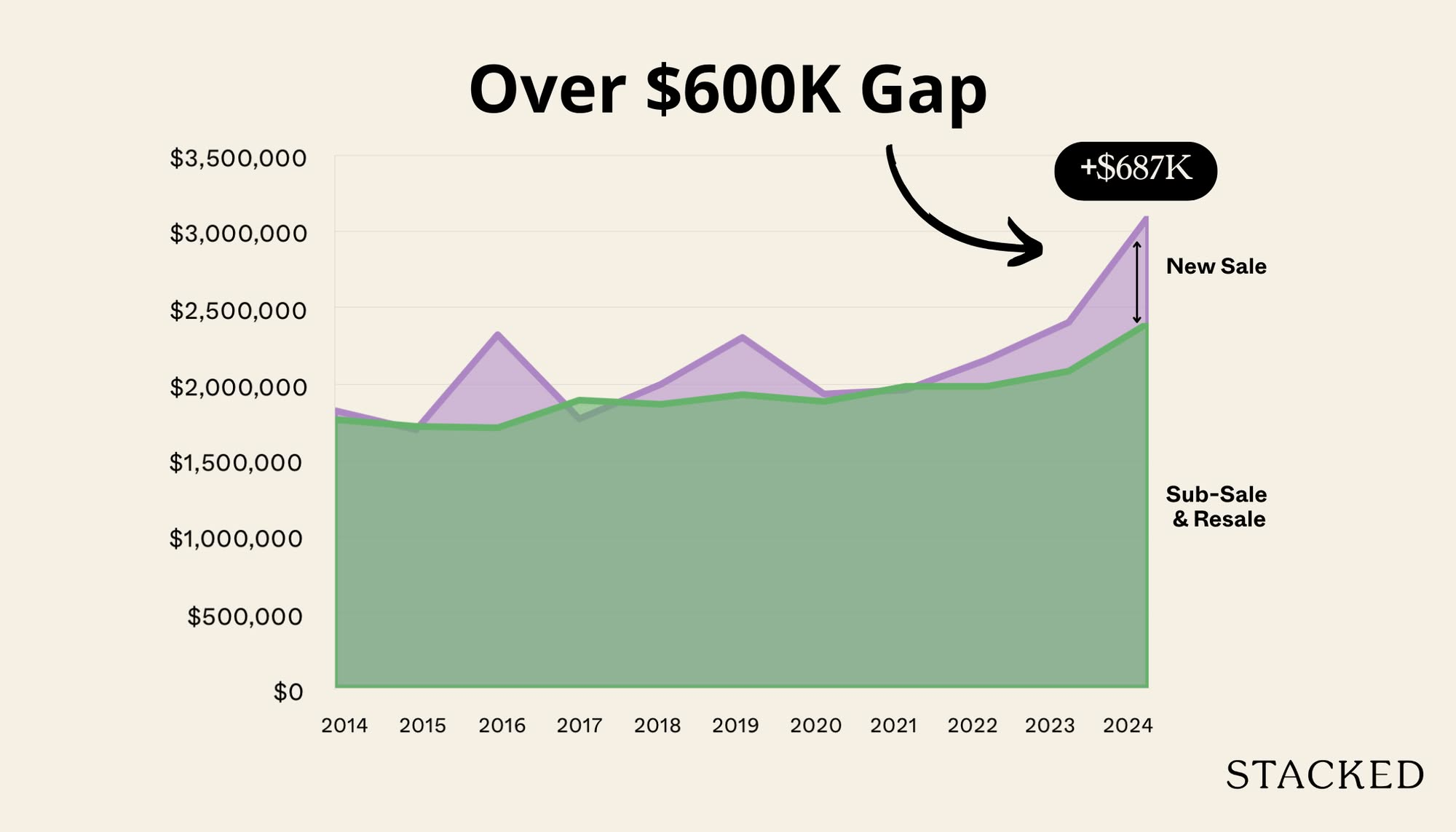
Property Investment Insights We Compared New Vs Resale Condo Prices In District 10—Here’s Why New 2-Bedders Now Cost Over $600K More
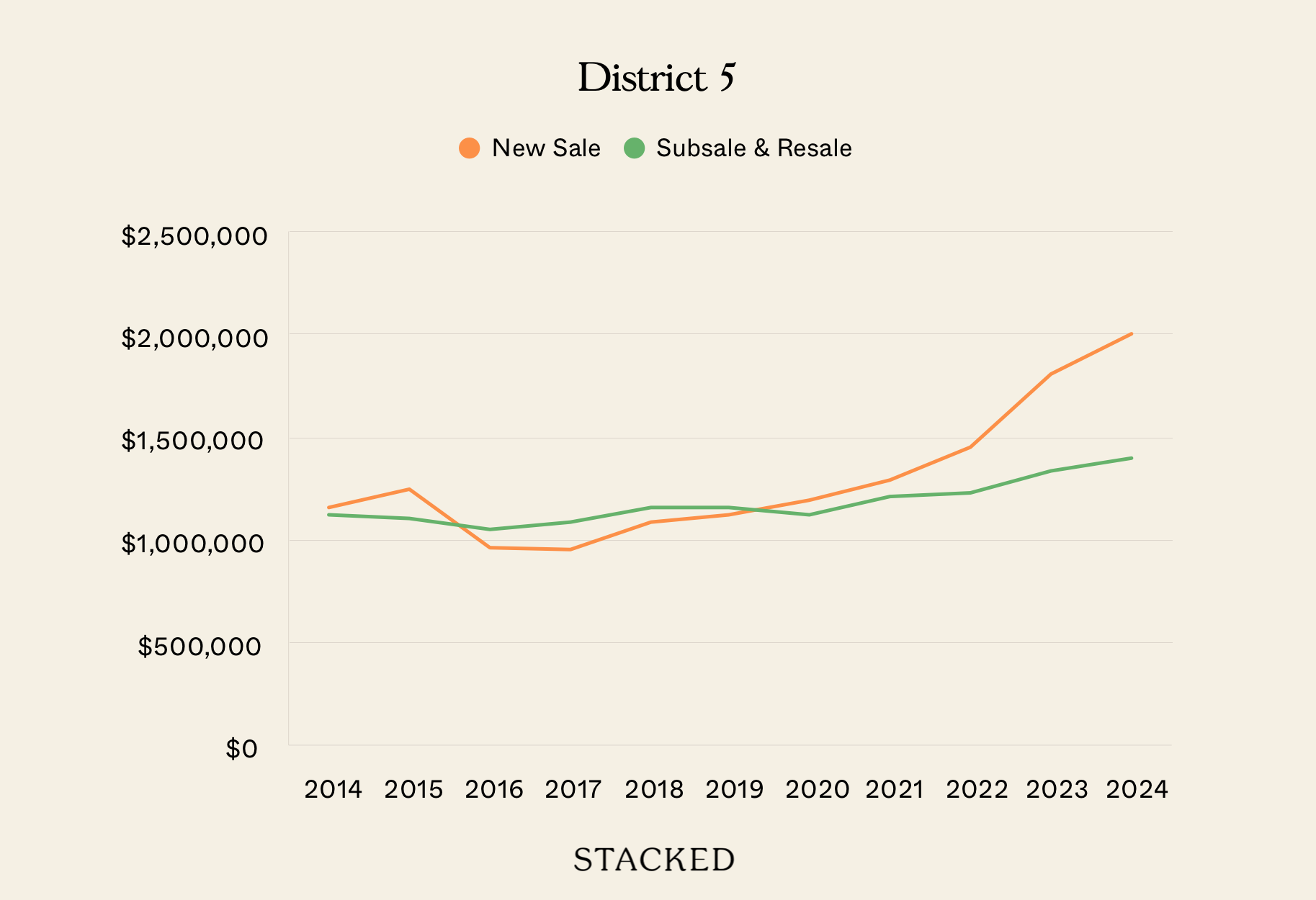
Property Investment Insights We Compared New Launch And Resale Condo Prices Across Districts—Here’s Where The Price Gaps Are The Biggest
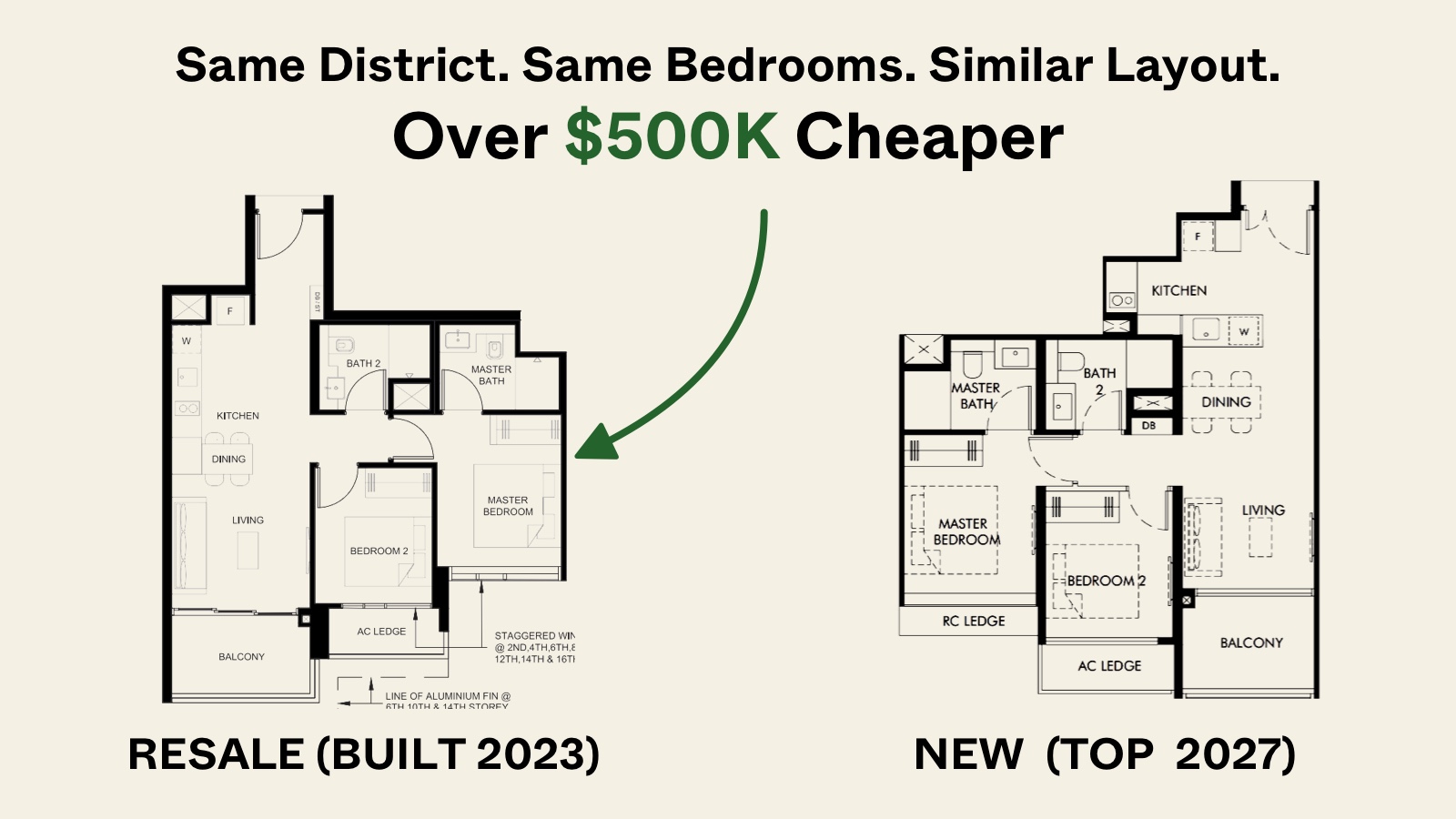
Property Investment Insights Similar Layout, Same District—But Over $500K Cheaper? We Compare New Launch Vs Resale Condos In District 5
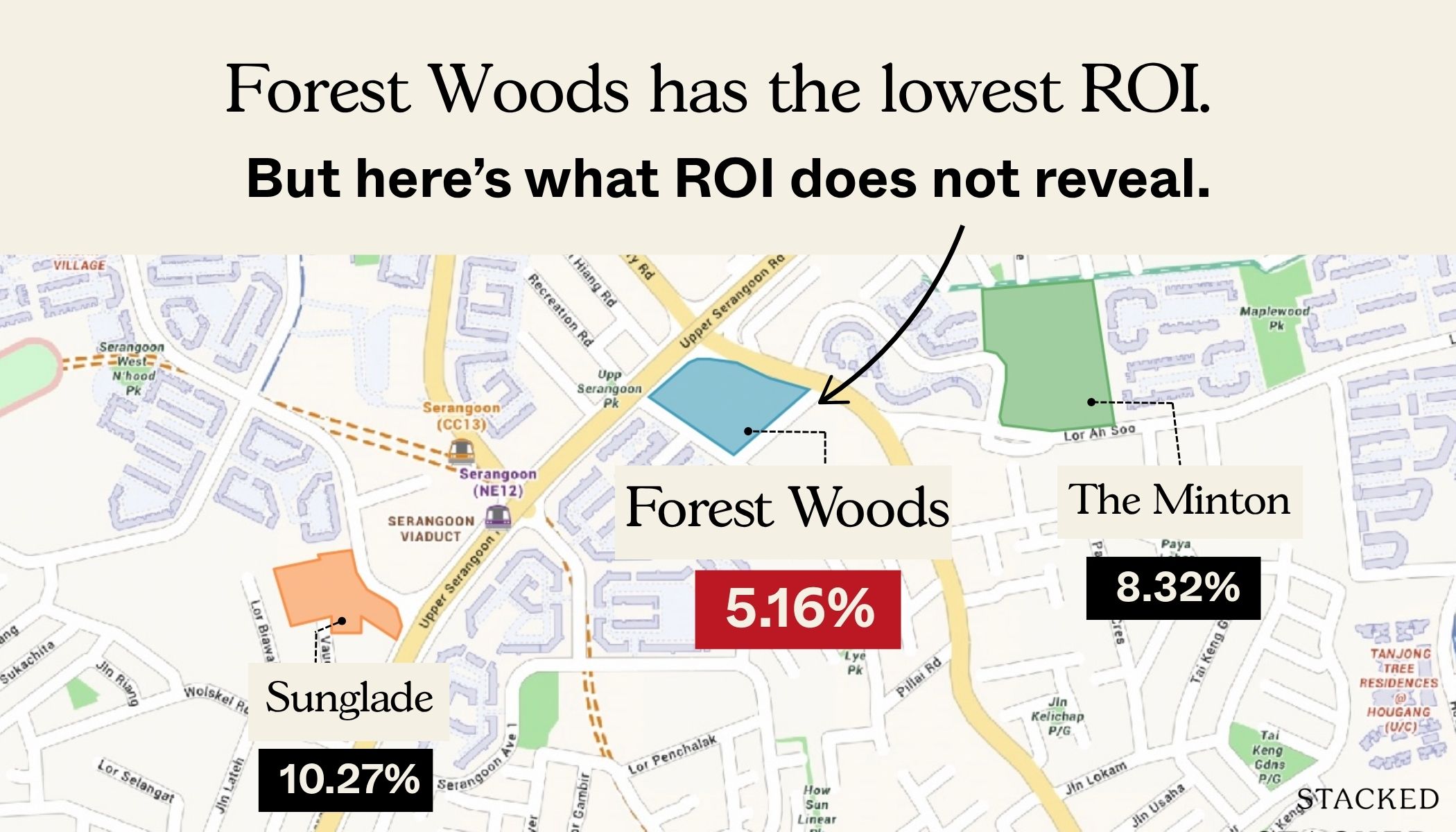
Property Investment Insights Analysing Forest Woods Condo at Serangoon: Did This 2016 Project Hold Up Over Time?
Latest Posts
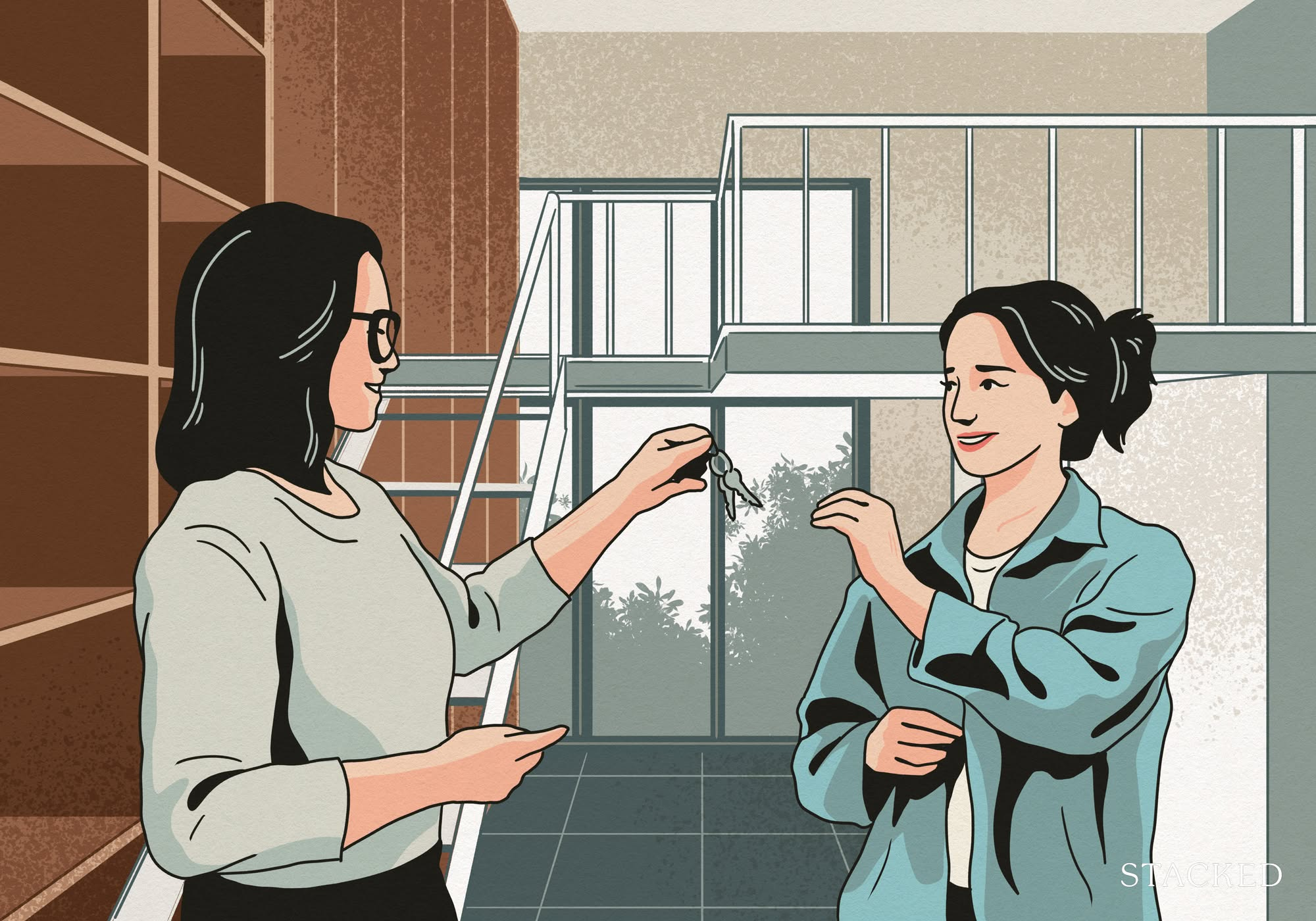
Singapore Property News They Paid Rent On Time—And Still Got Evicted. Here’s The Messy Truth About Subletting In Singapore.
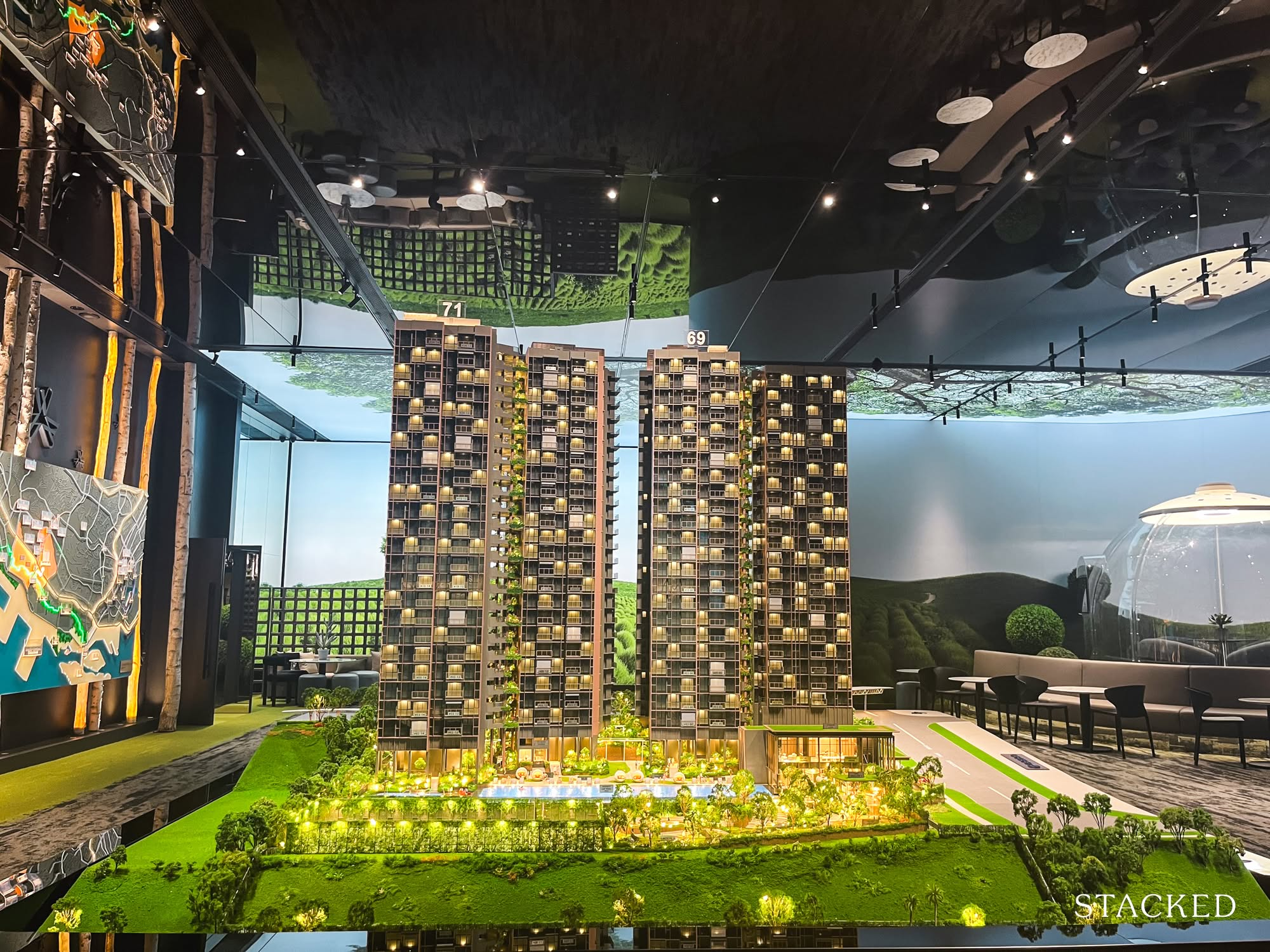
New Launch Condo Reviews LyndenWoods Condo Review: 343 Units, 3 Pools, And A Pickleball Court From $1.39m
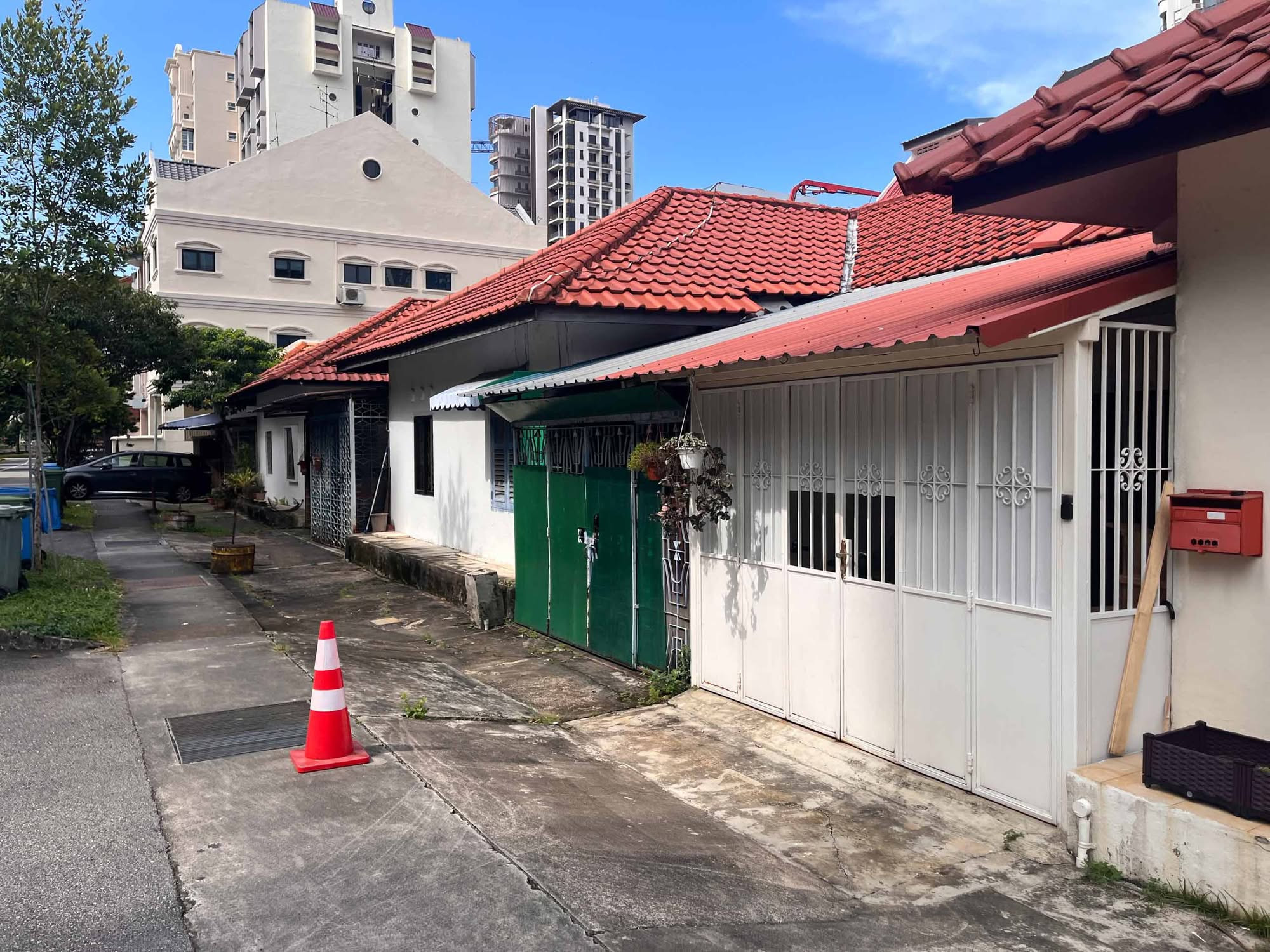
Landed Home Tours We Tour Affordable Freehold Landed Homes In Balestier From $3.4m (From Jalan Ampas To Boon Teck Road)
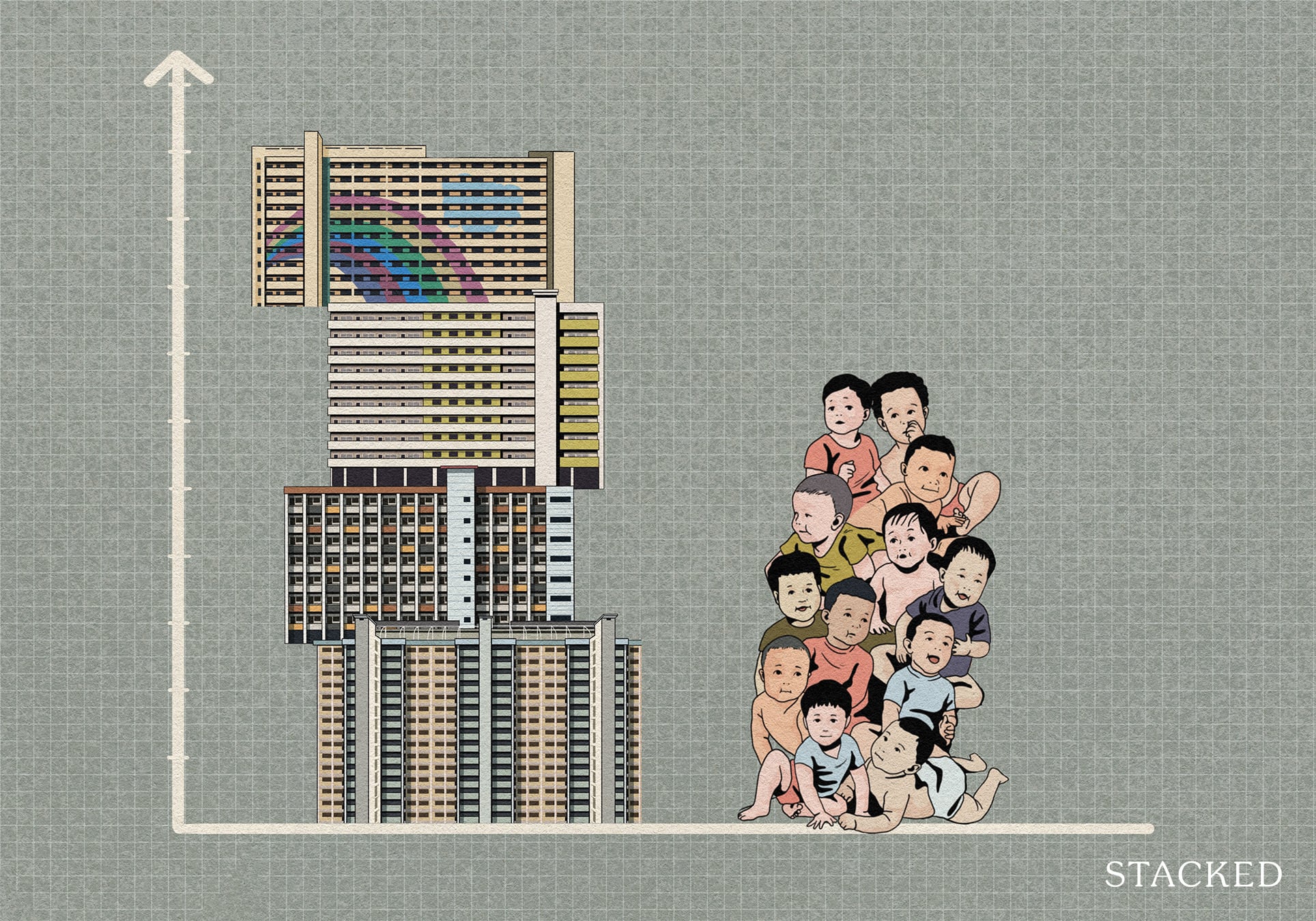
Singapore Property News Is Our Housing Policy Secretly Singapore’s Most Effective Birth Control?
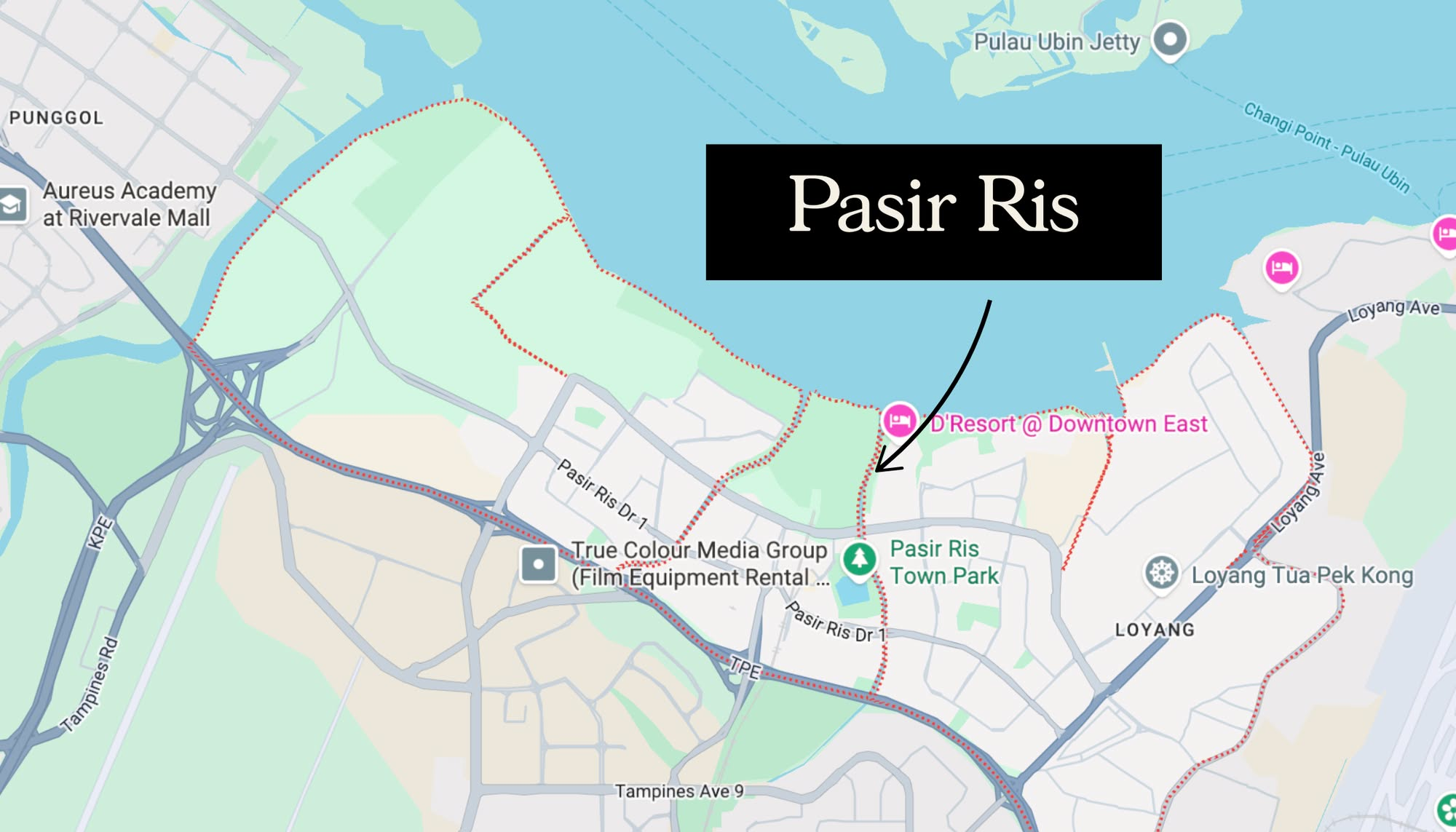
Property Market Commentary Why More Young Families Are Moving to Pasir Ris (Hint: It’s Not Just About the New EC)
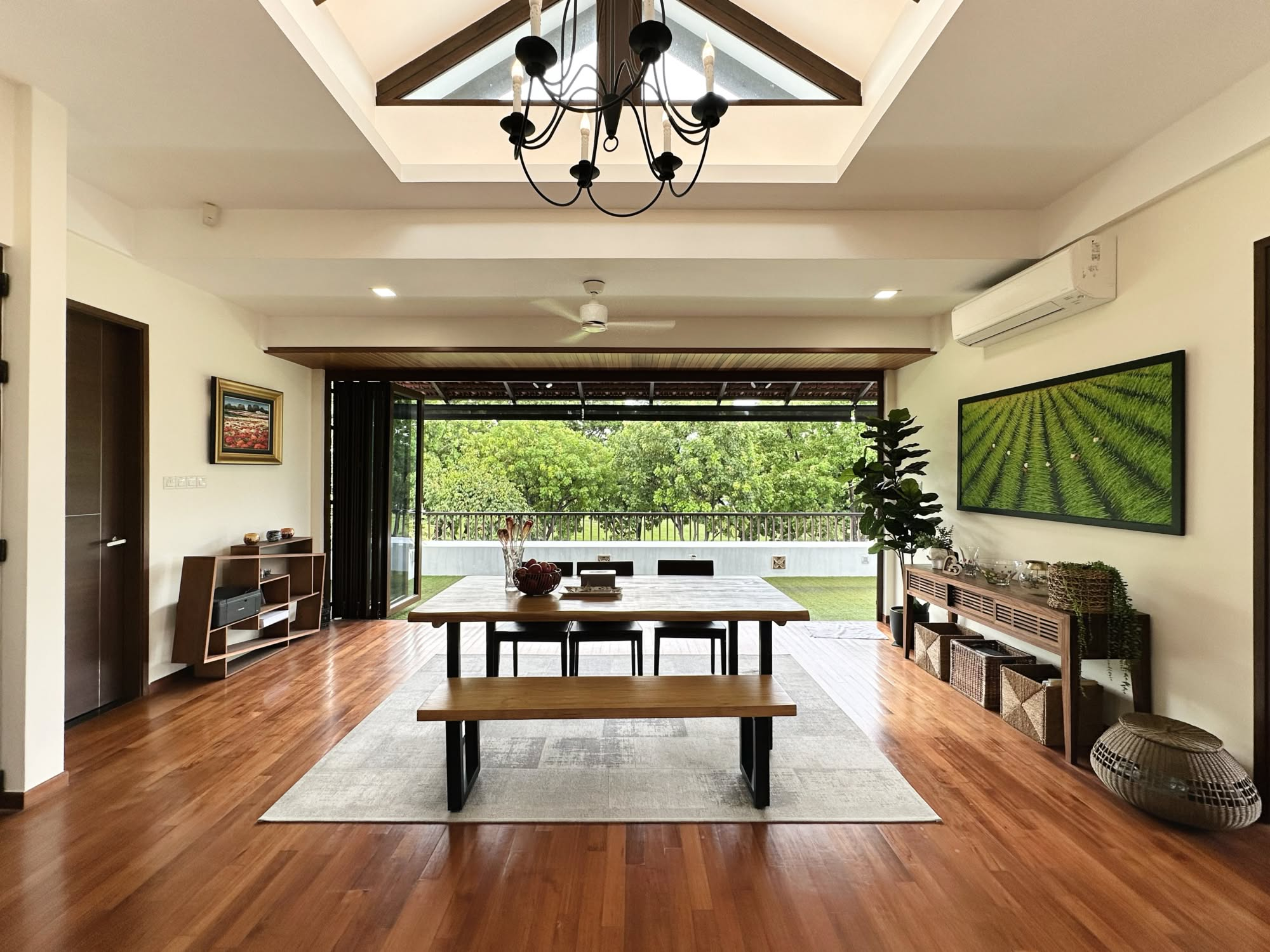
On The Market A 10,000 Sq Ft Freehold Landed Home In The East Is On The Market For $10.8M: Here’s A Closer Look
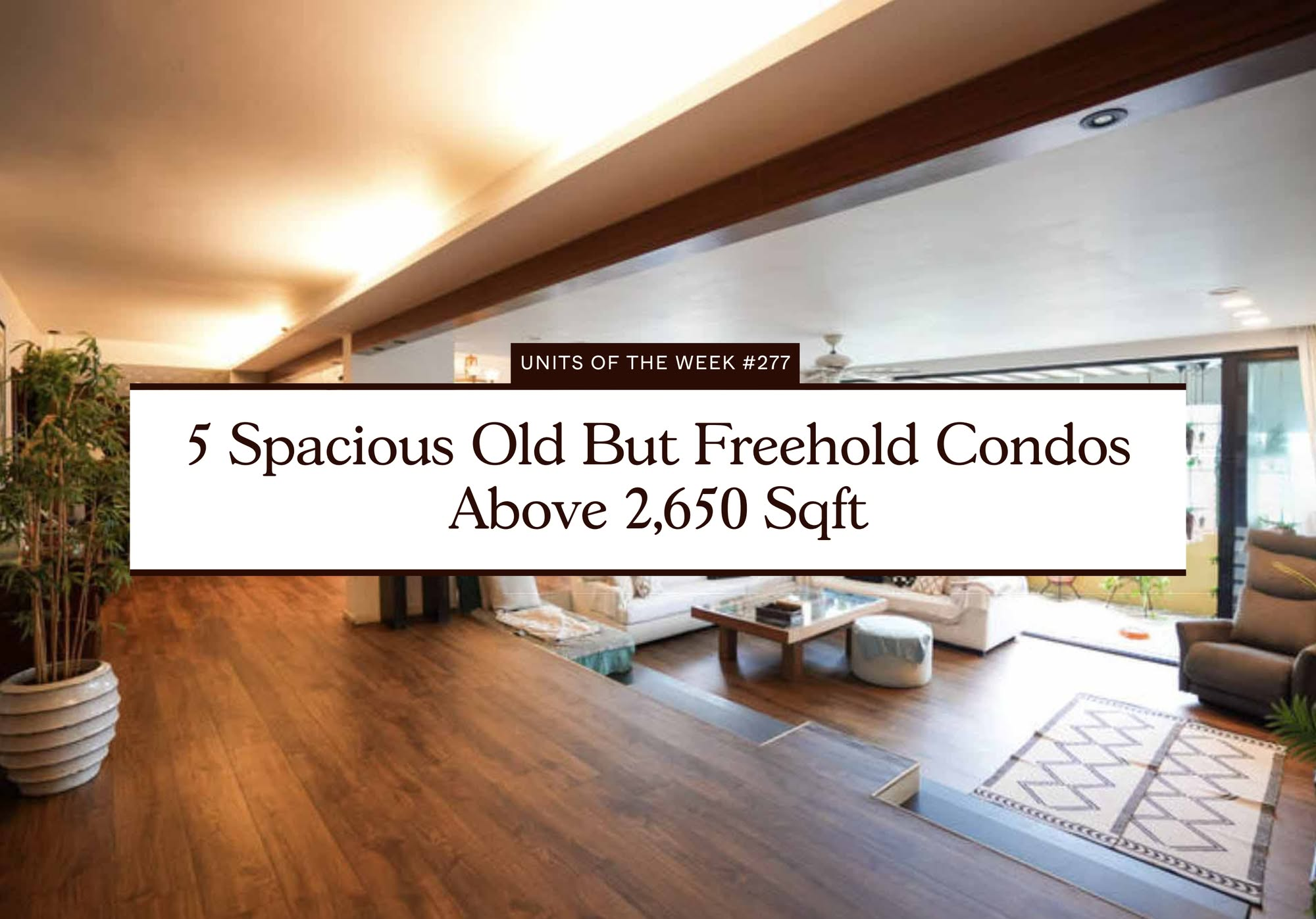
On The Market 5 Spacious Old But Freehold Condos Above 2,650 Sqft
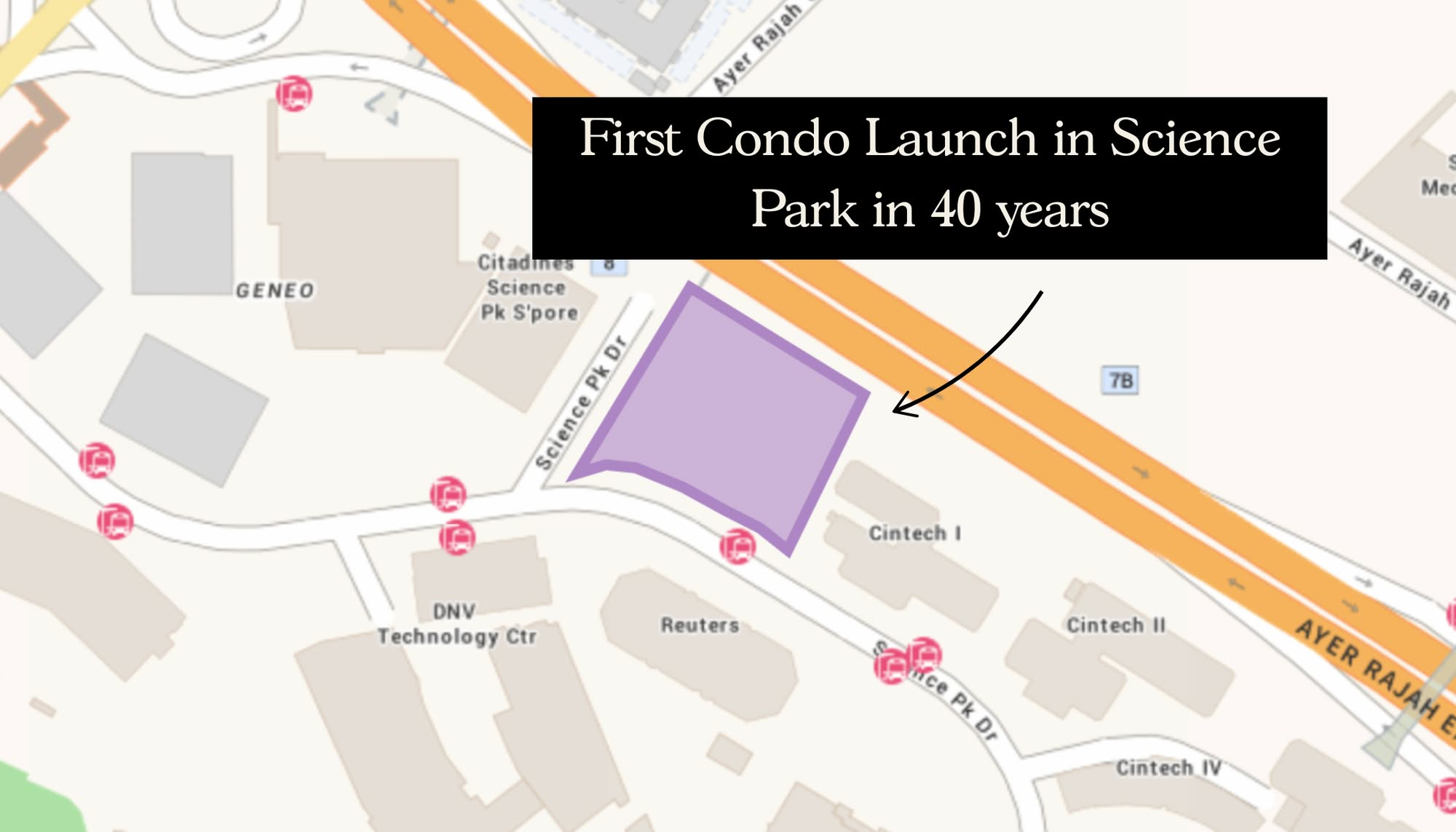
New Launch Condo Analysis The First New Condo In Science Park After 40 Years: Is LyndenWoods Worth A Look? (Priced From $2,173 Psf)

Editor's Pick Why The Johor-Singapore Economic Zone Isn’t Just “Iskandar 2.0”
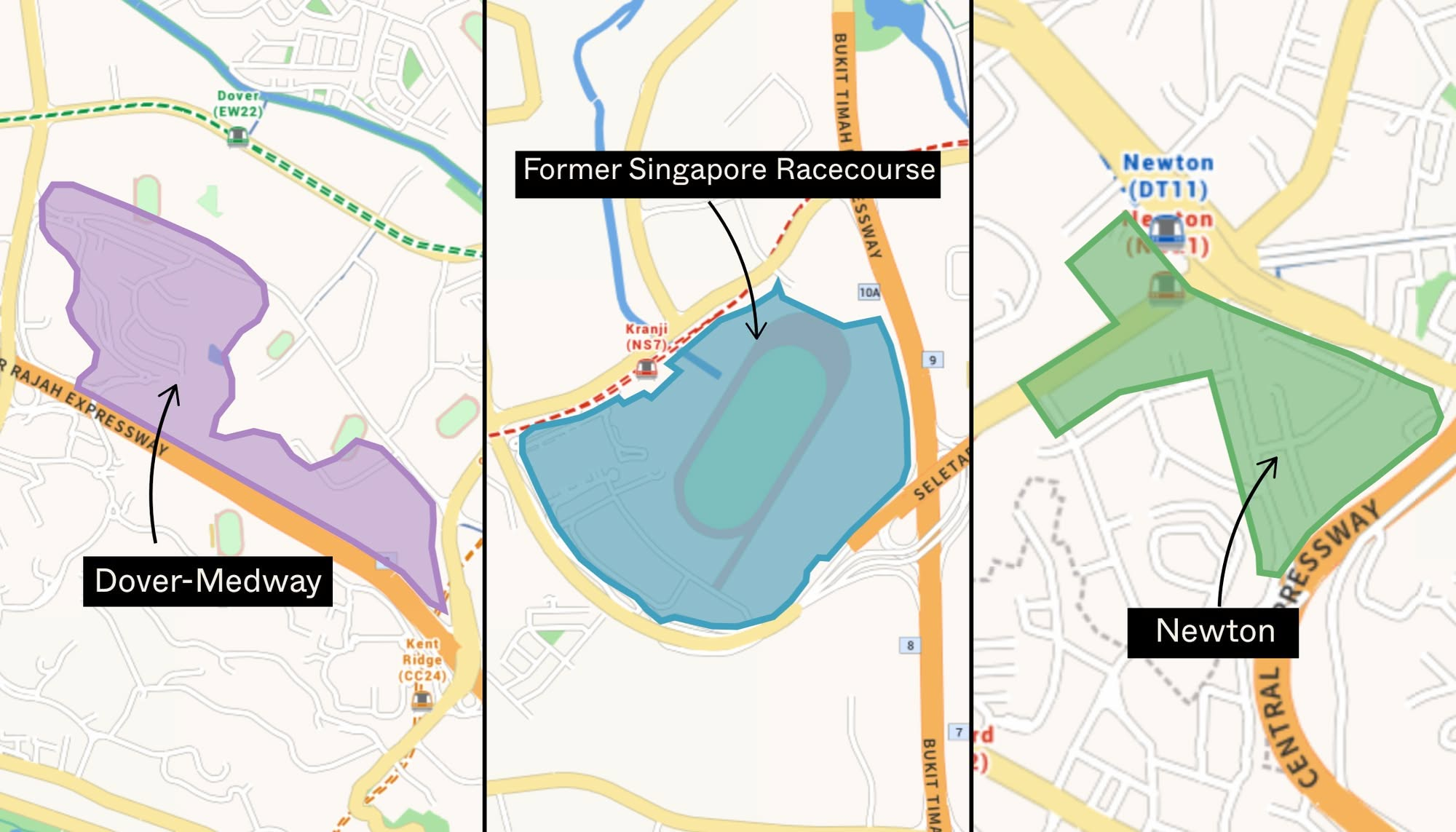
Editor's Pick URA’s 2025 Draft Master Plan: 80,000 New Homes Across 10 Estates — Here’s What To Look Out For

Property Advice We Ranked The Most Important Things To Consider Before Buying A Property In Singapore: This One Came Top
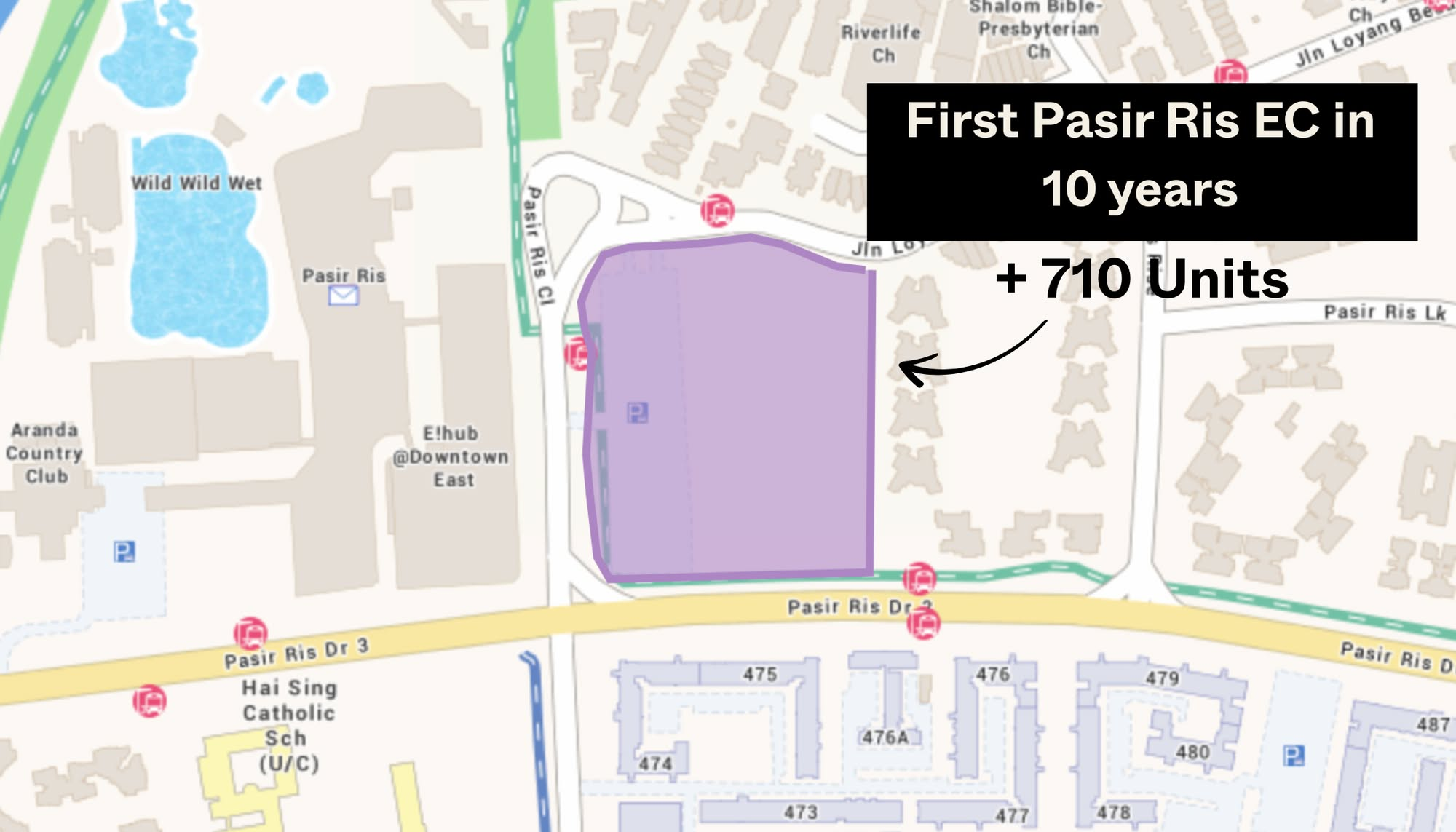
Property Market Commentary This Upcoming 710-Unit Executive Condo In Pasir Ris Will Be One To Watch For Families
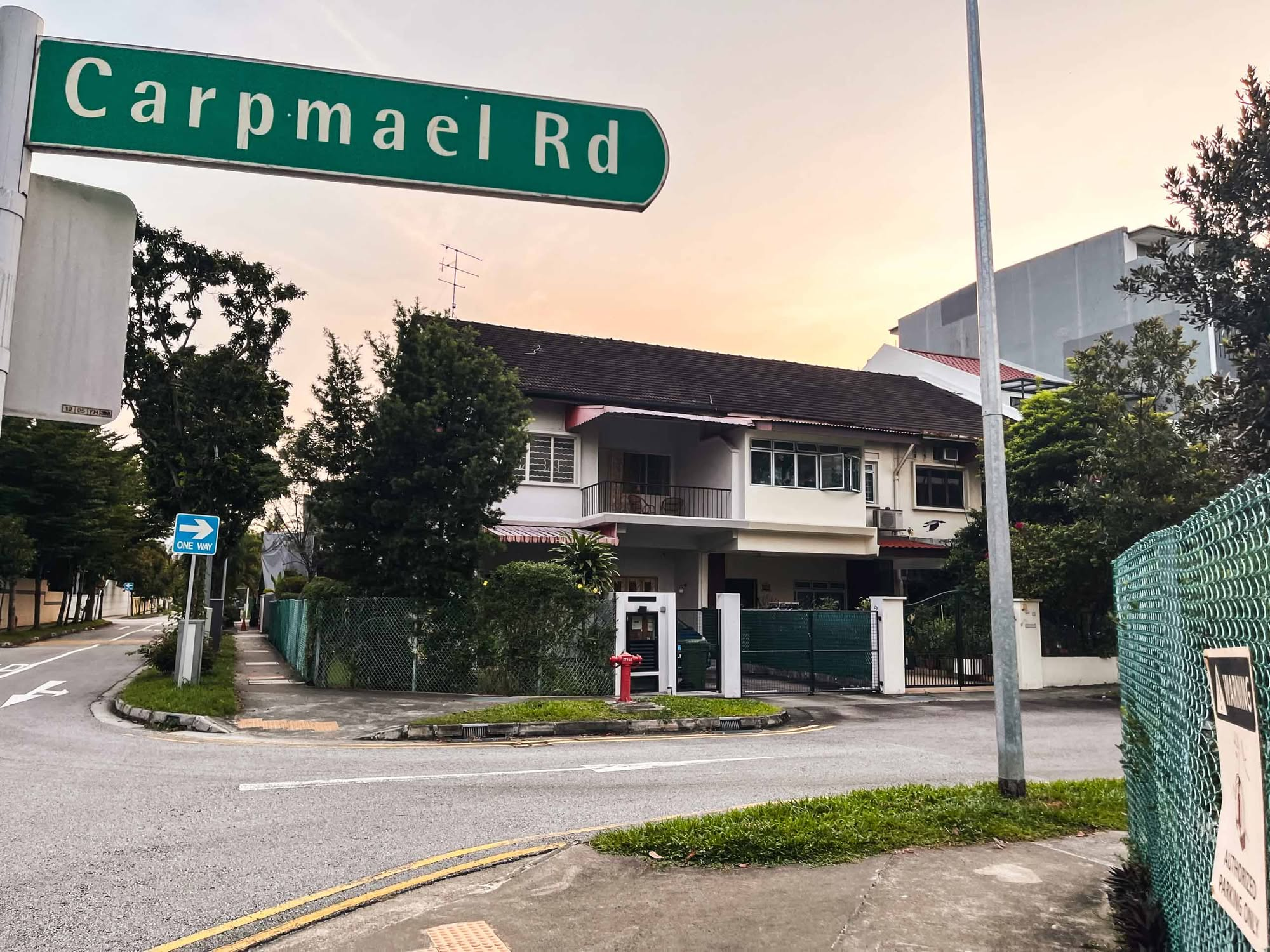
Editor's Pick Where To Find Freehold Terrace & Semi-D Landed Homes From $4.85 million In The East
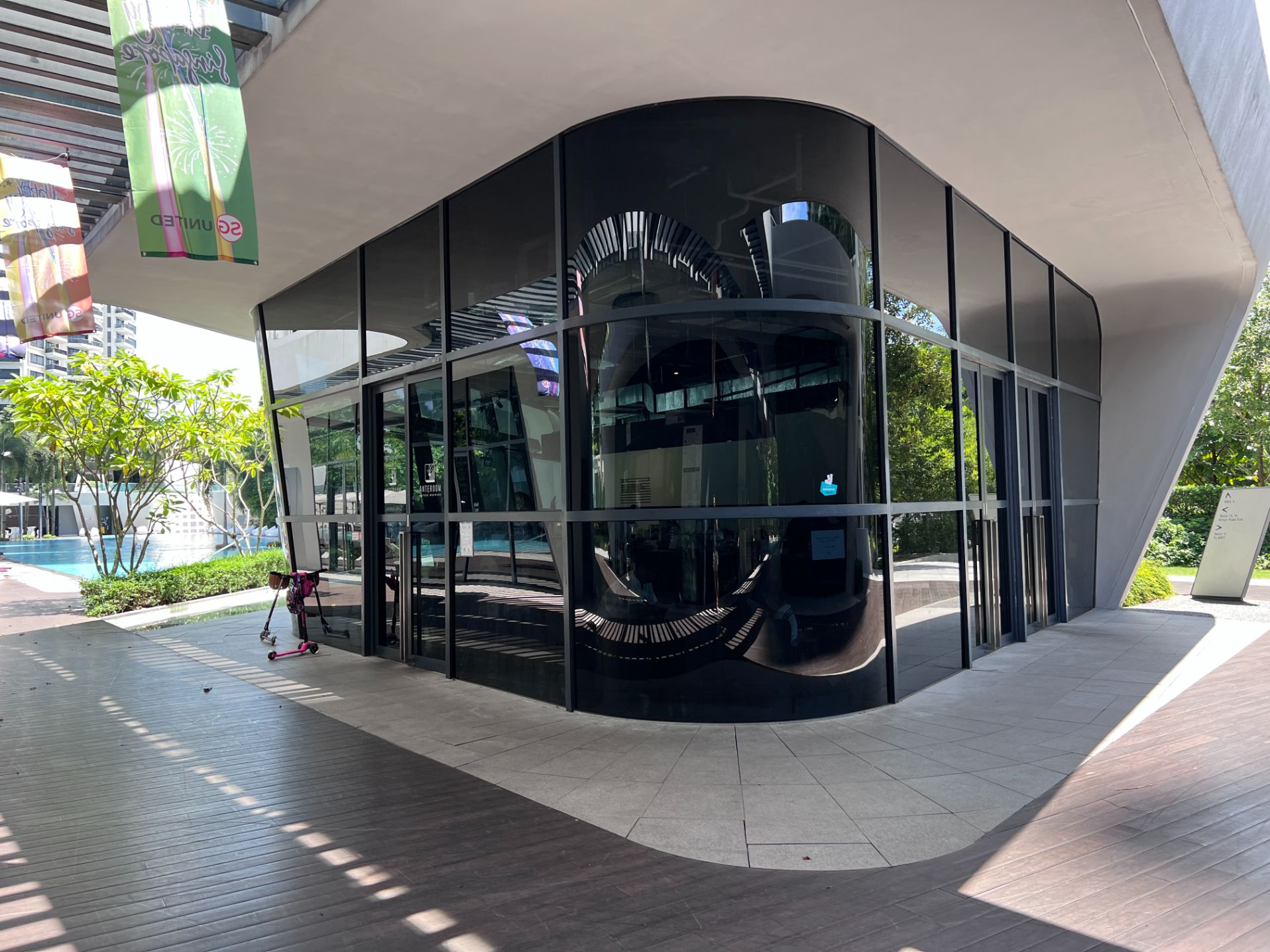
Singapore Property News She Lost $590,000 On A Shop Space That Didn’t Exist: The Problem With Floor Plans In Singapore
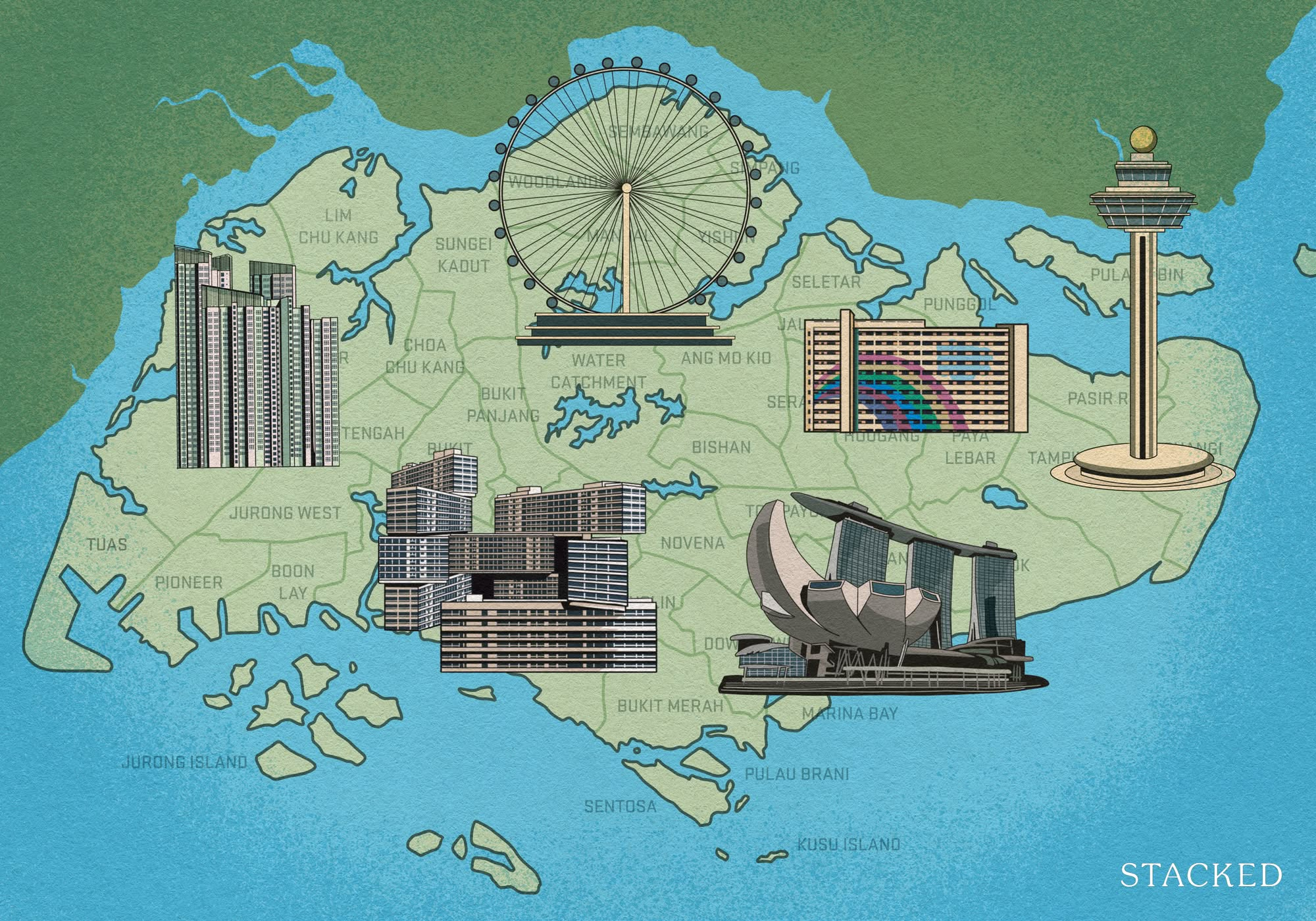
Editor's Pick Which Central Singapore Condos Still Offer Long-Term Value? Here Are My Picks
